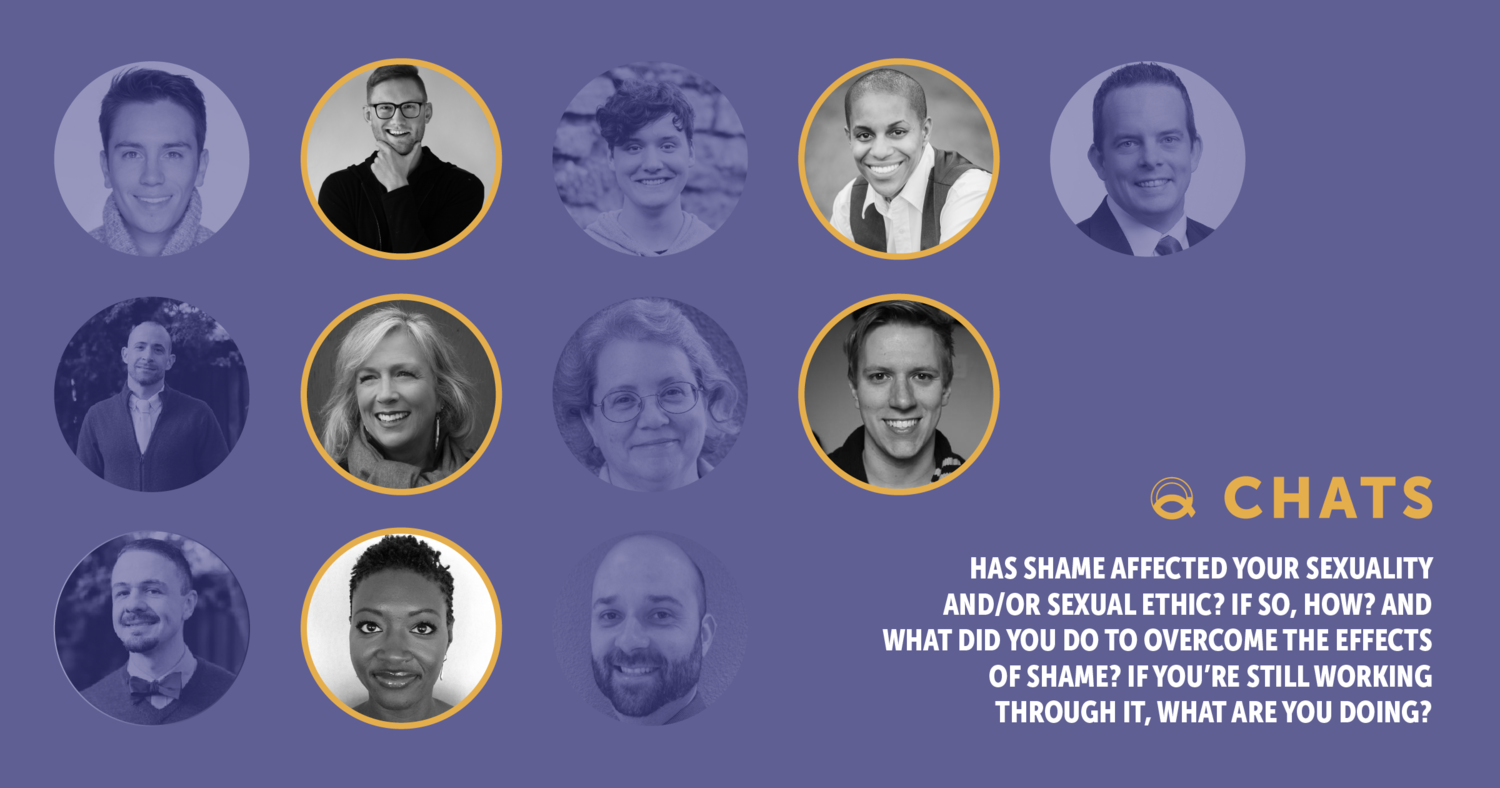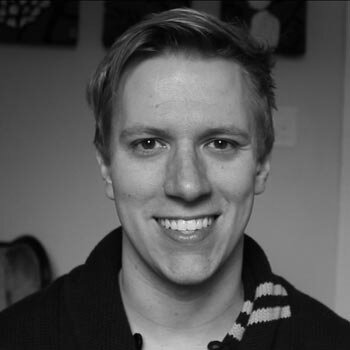Q Chats | Sexual Ethics | Week 2 (Part 1)
Q Christian is a community comprised of people with diverse backgrounds, differing theological beliefs, and a variety of ethics. Q Chats are designed to be a deep dive into self-discovery by learning from one another, and spiritually growing side-by-side. Q Chats cannot be effective without you! We invite you to participate. Share your thoughts, stories, and perspectives. Your influential voice can make a difference in the lives of others.
Has shame affected your sexuality and/or sexual ethic? If so, how? And what did you do to overcome the effects of shame? If you’re still working through it, what are you doing?
Bukola Landis-Aina
Like many, I had been taught that both sex before marriage and homosexuality were sinful. After years of staunchly shutting down the possibility of sexual encounters with men, I tumbled headlong into relationship with a woman with little resistance. It was not what I had been tempted by and guarding against for all those years. So this led to overwhelming shame attacks and in response I would cut things off with my girlfriend. I finally had to have a major come to Jesus moment and with prayer and reminding myself of God’s promises that nothing could ever separate me from the love of God, ever, ever, ever... eventually, I felt at peace about my decision to pursue the relationship despite continued turmoil over my unsettled and unsettling changes in theology, sexual ethics and not to mention my closeted relationship.
Tonetta Landis-Aina
Shame definitely has, and to an extent still does, affect the expression of my sexuality. I was raised in a family and church culture in which the body was a contested site. You were to take care of it because it was God’s temple, but it was also the source of bodily functions which were to be hidden as well as the root of sexual feelings that were tempting at best and defiling at worst. I’m still very much learning to love my body for all that it is and does and I’m still learning to embrace my sexuality as a part of my morning, noon, and night experience. I certainly cannot say that I’ve overcome the effects of shame. Every day I work on incorporating into conversation what my body does and what my body needs with those close to me.
Essentially, I am trying to practice what still some days feels like a stretch for me: that my body is me and that the way I, as an inspirited body, show up every day is not good or bad but simply human. Even getting to this point has taken two seminary classes on sexuality and sexual ethics and lots of reading. I also find it extremely helpful to make a regular practice of meeting with a counselor who can help me navigate my own shame and recover from it.
(*Farley, Margaret A. Just Love: A Framework for Christian Sexual Ethics. New York: Continuum International Pub. Group, 2008. Print.)
Brian Murphy
Absolutely. For the first few years after I came out, shame around sexuality — sexuality in general and my queerness in particular — made it difficult for me to articulate my desires and so I often stumbled into them unprepared — at parties, while drinking, late at night after months of abstinence. In hindsight, most (but certainly not all) of my romantic and sexual experiences in those early years were positive. But at the time, my shame told me to judge them. You should feel bad about that blowjob, you shouldn’t have slept with that guy you’re dating so soon, God doesn’t want you to be gay so you should break up with this really sweet guy.
Taking a break from “trying to figure it out” when it came to my faith and sexuality was an important step, being around secular queer folks and queer folks of faith who were already comfortable in their sexuality, being gentle with myself, reading not just academic books about “Homosexuality and the Bible” or whatever but also reading poetry and novels. Allowing myself to dream about a future where I was happy and fulfilled and fully my queer Christian self even if I didn’t quite know the exact steps to take yet.
Melinda Melone
I grew up Catholic in the 1960s and ‘70s, when “gay” wasn’t even a thing I knew I could be – I thought it meant Elton John or women who hated men and lived in all-female communes. I was taught that the Church defined sexual ethics, along with everything else in the moral and ethical sphere. It wasn’t until I got to college that I learned the distinction between orientation and behavior, and that there could be differences of opinion among faithful Christians on what to do about both. It would also have been helpful to know some basic facts about the gender and sexuality spectra.
Matthias Roberts
Shame and sexuality are inextricably tied. Shame is not something to overcome so much as it is something to embrace: what does our shame tell us about ourselves? Pay attention, because those messages show us parts of ourselves which need tending and care. Learning to tend and care for those parts, the parts that feel isolated and unworthy and unwelcome, is a lifelong process and is something that cannot be done in isolation.
Dr. Tina Schermer Sellers
I had the good fortune to grow up in a Swedish-American home that was very open about sexual education and conversations around sexuality. There has been a long history of this openness in my family going back at least three generations. I say this to illustrate that I didn’t experience much shame around my sexuality and I didn’t experience my parents, grandparents, or aunts and uncles having shame around their sexuality either. I listened to my relatives discuss sexuality as well as explain things to me often. It felt as common as a conversation about how to be healthy, how to cook good food, or how to tease each other. It was lighthearted and very much woven into the other conversations that were happening around me and with me. I was well into my 30s before it dawned on me what an odd experience I had growing up in a family like this.
Now, this is not to say that I did not absorb all kinds of messages about gender (what it means to be a “girl” or “woman”) or about bodies (what type of female body was “the best” or “preferred”). There were plenty of those messages coming from my family and from culture that I absorbed. So, where I felt shame or unworthiness was around not having the body type that was preferable. My mother was a runway model when she was young, while I spent my childhood and a chunk of adolescence training for the Olympics as a figure skater. I was built like my father with quarterback quads and gluts which were great for skating, but definitely not the commercialized twiggy body. My mother did not understand my body and began putting me on diets as young as age seven. This unfortunately would later go on to cause a serious metabolic disorder and many more years to practice facing down shame.
I feel very fortunate to have grown up in a family that was comfortable and fairly knowledgeable around the topic of sexuality. This was a gift beyond measure. This gift made the extreme sexual shame suffered by many who had experienced abstinence education and/or the purity movement all the more stark and deeply sad to me. I believed in every part of my being that God had given us our sexuality as a powerful place to know our belovedness and to share that love w another. I believed sex was to be a healing force in our lives.
Working with people who have suffered sexual shame or religious sexual trauma, I invite them to begin the healing process through a model I call Healing the M.E.S.S. – Model for Erasing Sexual Shame. In this model, you first begin to get yourself the sex education you were never granted. This helps a person begin to see God’s incredible attention to detail in how we are designed to experience connection and pleasure. I call this FRAME – giving yourself a frame of sexual education by which to build a healthy sexual ethic and experience sexuality in a way that honors you. Next, I encourage people to NAME – begin to tell their story of what it was like to grow up in their household, specifically around sexuality and pleasure. When we share our story in the company of compassionate others, it helps shame begin to dissipate. I will often recommend that people read my book (Sex, God & the Conservative Church – Erasing Sexual Shame) in a book group as a place to facilitate these conversations. Third (though you don’t work these steps in a linear fashion – but rather in a circular fashion, over and over one leading to the next, leading you back to the first, etc.) you begin to work on claiming your body as a good thing – just as it is. This process I call CLAIM. It is so important that we work to stand up against all the lies of our consumer culture about bodies, and instead advocate for the beauty and diversity that is us and our fellow humans. As you might imagine, this is the area where I have had to work the hardest. Traveling in other countries, going to clothing optional spas and beaches, being in other cultures, allowing in my partner’s love for my body have all helped me to appreciate the diversity and beauty of bodies and the wonder of God’s creation. It has helped me separate myself from the hurtful messages of our consumer culture and see myself and my body as a gift.
The fourth area I invite people into when healing sexual shame is AIM. As we FRAME, NAME, and CLAIM, we will find that we are beginning to aim toward a new and revised sexual ethic and sexual legacy. As shame dissipates, in its place will be a solid sense of who we are sexually and how we want that to show up in our lives. As your relationship to your own sexuality changes, this will also influence how you relate to others. You will find that a new sexual legacy is emerging – one not filled with shame, but instead filled with what feels solid, pleasing, and honoring to you.








